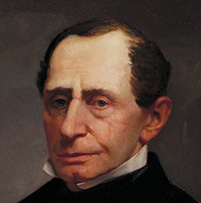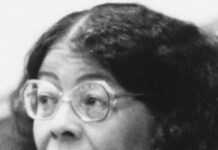 Johns Hopkins, the founder of the university in Baltimore that bears his name, has been thought of as a staunch abolitionist whose father, a committed Quaker, had freed the family’s enslaved people in 1807.
Johns Hopkins, the founder of the university in Baltimore that bears his name, has been thought of as a staunch abolitionist whose father, a committed Quaker, had freed the family’s enslaved people in 1807.
But a research team established in 2013 to further investigate the history of Johns Hopkins has found evidence that contradicts the generally held beliefs. The team found Census records that show that Hopkins was the owner of one enslaved person listed in his household in 1840 and four enslaved people who were listed in 1850. The university was founded in 1876.
Hopkins apparently had sold or freed his slaves by 1860 as the Census that year did not indicate any enslaved people in his household. Later in life, Hopkins demonstrated benevolence to African Americans. In addition to the university, Hopkins also established a university hospital that when it opened in 1889 served all patients regardless of race. He also founded an orphanage for Black children.
In a letter to the campus community, Ronald J. Daniels, president of Johns Hopkins University wrote that “like so many others who have made meaningful contributions to our country’s history, Mr. Hopkins is a complex and contradictory person whose story holds within it multiple truths — both his participation in slaveholding and his extraordinary and specific gifts to the people of Baltimore, particularly those gifts that supported Black Baltimoreans at a time when other White leaders of similar means did not.”












